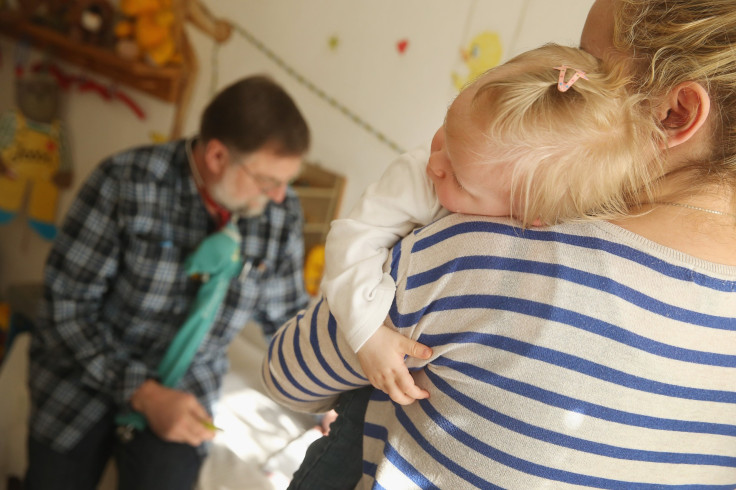CBD For Kids: Health Risks Parents Should Know
KEY POINTS
- CBD is now being used to treat several conditions in children, including anxiety and epilepsy
- The risks that come with the product include interaction with other medications a child is taking
- A report from WHO concluded that "CBD is generally well tolerated with a good safety profile"
Cannabidiol, or CBD, has become popular as a form of treatment for some conditions that occur in children. But what are the risks that come with CBD being used to treat kids?
CBD, a substance extracted from either hemp or marijuana, is now commercially produced in many forms — from liquid to chewable gummies — and can be procured without a prescription. It is now being used by some parents and caregivers to treat several conditions in kids, including anxiety, hyperactivity and even autism.
Epidiolex, which consists of purified cannabidiol, was approved by the Food and Drug Administration (FDA) in 2018 as a treatment for difficult-to-control seizures in young children with Dravet syndrome and Lennox-Gastaut syndrome, two rare forms of epilepsy. It was also approved by the FDA in 2020 for the treatment of seizures associated with tuberous sclerosis complex (TSC) in patients one year of age and older.
While CBD has shown promising medical results when administered on children, some parents are still uncomfortable with the idea of giving the product to their kids — a valid concern since very little research into its safety or its efficacy in children has been done.
Health experts are concerned over available CBD products' lack of reliability in delivering a consistent amount of CBD, according to the Child Mind Institute. An analysis of the products has shown that many do not have the amount of CBD that they advertise.
Very little is known about how much CBD is actually delivered to a child's brain. Depending on the delivery systems — vaping, taking it orally or eating it in baked goods — the amount of CBD absorbed by the brain varies.
“Effects can vary a lot based on the delivery system used and the amount people are exposed to can be inconsistent,” says Dr. Paul Mitrani, clinical director at the Child Mind Institute.
Mitrani noted that CBD could interact with other medications a child is taking. According to Healthline, CBD, like grapefruit, interferes with some of the enzymes needed to metabolize drugs in the system.
A child being treated for sleep problems may also become tolerant to CBD and possibly experience worsening issues once they stop using it. Some of the side effects associated with Epidiolex and other CBD oil products are insomnia and poor sleep quality.
With CBD being largely unregulated, Healthline also noted that there’s no way to be certain a CBD product is free from tetrahydrocannabinol (THC), with perhaps the exception of Epidiolex. Another risk comes with finding the right dosage for kids as CBD use in children is still relatively new.
The World Health Organization (WHO) concluded last year that "CBD is generally well tolerated with a good safety profile" and found no indication of potential abuse or dependence. According to the report, adverse effects of the product could be a result of interactions between CBD and other medications a patient is taking.
"To date, there is no evidence of recreational use of CBD or any public health-related problems associated with the use of pure CBD," the WHO report added.

© Copyright IBTimes 2024. All rights reserved.





















